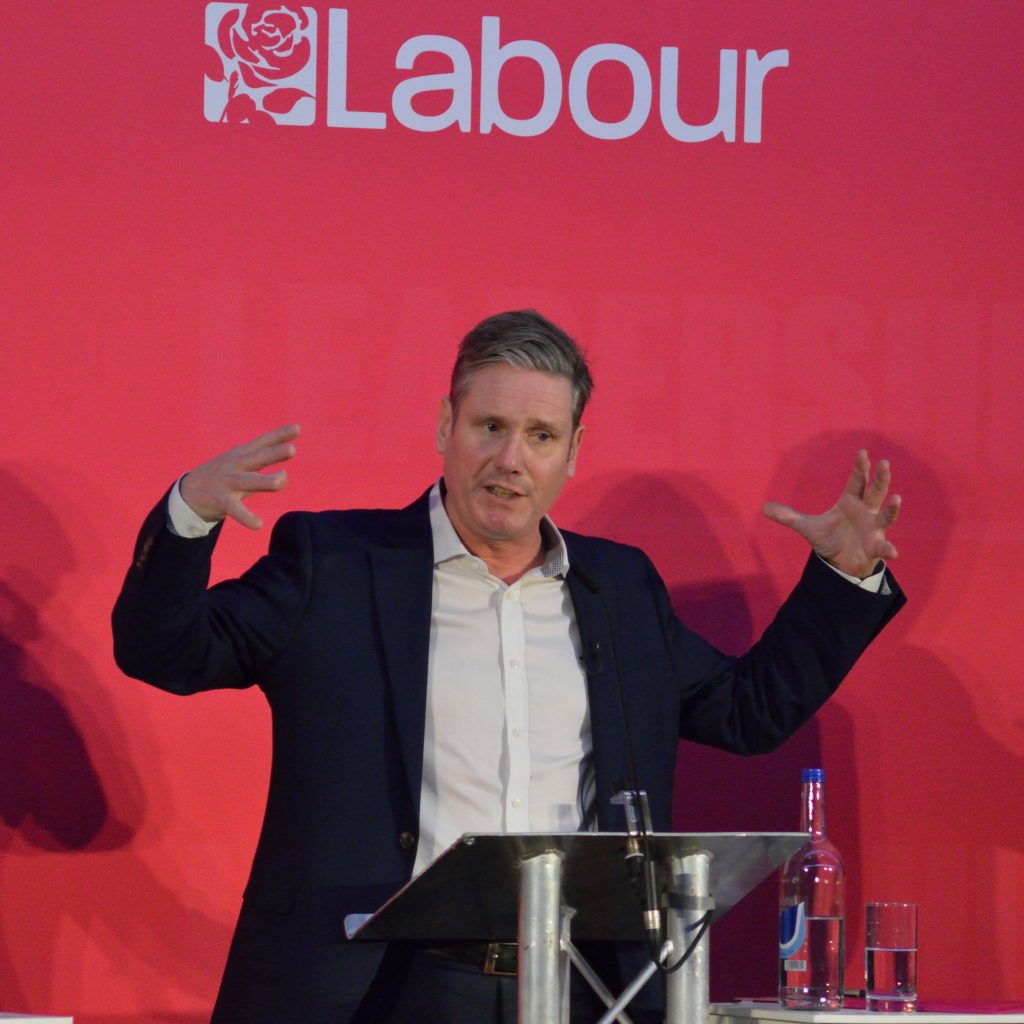U.K. Net Zero mandate will sink the British economy and PM Keir Starmer’s ‘Pro-Growth’ Labor Party manifesto. (Commentary)
By Rupert Darwall
“We did it,” Sir Keir Starmer told cheering Labour supporters at a 4 a.m. victory rally. “Change begins now. And it feels good.”
Did what, exactly? is a question Britain’s new prime minister should reflect on as he enters Downing Street with a huge 176-seat majority in the House of Commons – because Labour’s mandate from the country is not what it appears. At 34%, Labour’s share of the national vote is the lowest for any governing party in the last century.
Overall, Labour’s vote share this year is five points lower than in the 2017 election under Jeremy Corbyn, Starmer’s much-derided, hard-left predecessor. Its share of the vote improved on its disastrous 2019 showing thanks only to a large increase in Scotland. In England, Labour’s vote was largely unchanged, and in Wales, it actually fell.
Despite Labour’s landslide in terms of the number of its Members of Parliament, at the constituency level, seat majorities are tighter than at any point since 1945. On closer inspection, Starmer’s victory resembles Joe Biden’s in 2020 – a rejection of an incumbent rather than a positive mandate for change, the kind that Tony Blair could boast of in 1997.
Starmer’s challenge is compounded by Britain’s enfeebled economy. “Wealth creation is our number one priority. Growth is our core business,” he declared when he launched Labour’s election manifesto last month. “The only route to improving the prosperity of our country and the living standards of working people. And that’s why we made it our first national mission in government.”
This prioritization makes political as well as economic sense. In an important eve-of-poll article, Chris Giles, Financial Times’s economics editor, shows that only the bottom 20% of the income distribution saw any real gains after inflation since the 2019 election. “Everyone else was hit harder by high inflation.” In prior years marked by fiscal austerity, income gains were higher for poorer than richer households.
“The outcomes for working-age household incomes since 2010,” Giles writes, are “exactly what you might expect a left-leaning government to produce. People hate it.” Generating economic growth should be Labour’s first, second, and third instinct, Giles argues.
But this approach would run counter both to Labour’s instinct to redistribute income and to its history. The British Labour party has never successfully turned around an ailing economy. Blair entered Downing Street with a strong economy, his economic adviser admitting that the economy Labour inherited was better than that of any incoming government in living memory. Blair was no Bill Clinton, whom the maestro of supply-side economics Art Laffer praises to the skies.
“Big fan of Clinton,” Laffer told Chris Giles two months ago. “I voted for him and campaigned for Clinton because Clinton did cut taxes.” Nonetheless, Blair had a great facility in articulating economic ideas. Hearing Starmer, a human rights lawyer, talk economics is like listening to someone struggle to speak a foreign language.
Despite his manifesto pledge, Starmer knows that wealth creation is not his government’s top priority. As a matter of law, the Climate Change Act 2008 imposes on his government, as on its predecessor, a duty to reach net zero by 2050. If the courts are persuaded that individual policies interfere with that duty, they can overturn those policies.
There is no corresponding duty to grow the economy. Neither should there be: Judicializing policy by creating cast-iron legal duties that require ministers to pursue certain policy outcomes replaces democratic accountability with the threat of judicial review. There is no “get-out” clause in the Climate Change Act, which was piloted through Parliament when Labour was last in power by climate and energy secretary Ed Miliband, whom Starmer has just reappointed to his old job. Starmer’s economic policy is a prisoner of net zero.
Apart from Nigel Farage’s Reform party, now Britain’s third-largest party in terms of votes won, politicians of all other parties subscribe to the fiction that net zero is the growth opportunity of the 21st century. In this, they are aided by the economics commentariat that either downplays, covers up, or outright denies the existence of any trade-off between net zero and economic growth. It is another example of what FT columnist Janan Ganesh, writing of Democrats and the media cover-up of President Biden’s mental impairment, calls “liberal denialism.”
Originally published by RealClearPolitics. Republished with permission.
For more Budget & Tax News.
For more Environment & Climate News.
